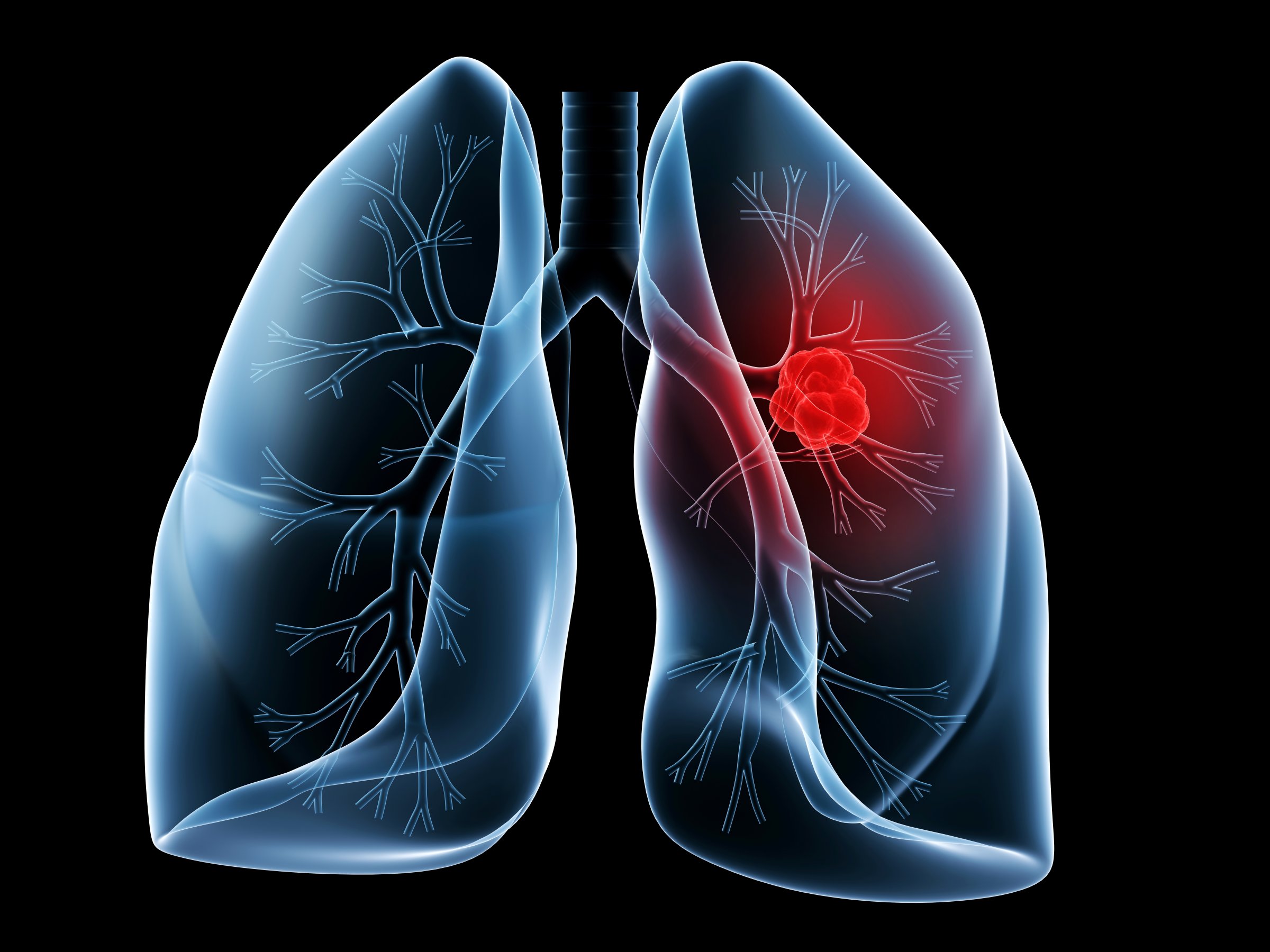
In research published in Nature Genetics, scientists report that a version of the BRCA2 gene, which, when mutated, can increase the risk of developing breast and ovarian cancers, also raises the risk of lung cancer.
Led by Dr. Christopher Amos, professor of community and family medicine at Geisel School of Medicine at Dartmouth College, the study included genetic data from 75,750 lung cancer patients and controls. Those with a relatively rare version of BRCA2 found in about 2% of the population, had a 26% increased risk of developing breast cancer, but an 85% higher chance of getting any type of lung cancer, and a 2.5-fold increased risk of developing an aggressive, hard-to-treat lung cancer known as squamous cell carcinoma. The lung cancer risk, says Amos, appears to an independent effect of BRCA on lung tissue, apart from its influence on the breast.
MORE: Lessons From the Woman Who Discovered the BRCA Cancer Gene
“We didn’t see an association to lung cancer with other BRCA2 variants, only this particular one,” says Amos. “What we found is a new effect of BRCA2 on lung cancer.”
Current tests for the BRCA 1 or 2 mutations, which account for about 5% of breast cancer cases in the U.S., already include this variant, so most women will know from their results whether they are at higher risk of developing lung cancer, much in the same way that BRCA mutations confer a higher risk of ovarian cancer.
MORE: The Angelina Effect
For now, however, there aren’t any effective treatments for squamous cell lung cancer. Smokers with the variant have twice the risk of getting lung cancer than those with the BRCA2 version who don’t smoke, so kicking the habit is one way to lower risk. But there are promising studies involving a class of drugs called PARP inhibitors, which is currently being studied to treat BRCA-related breast cancers. These drugs work by preventing tumor cells from repairing damage to their DNA, and given the newly discovered connection between BRCA2 and lung cancers, they might also be effective in treating squamous lung tumors. “It raises the question about how we can do a better job of allocating people to screening, and if [this variant] should become part of a panel for screening,” says Amos. Because squamous cell cancers are so hard to treat, such early detection of potential tumors might become a life-saver.
More Must-Reads From TIME
- The 100 Most Influential People of 2024
- Coco Gauff Is Playing for Herself Now
- Scenes From Pro-Palestinian Encampments Across U.S. Universities
- 6 Compliments That Land Every Time
- If You're Dating Right Now , You're Brave: Column
- The AI That Could Heal a Divided Internet
- Fallout Is a Brilliant Model for the Future of Video Game Adaptations
- Want Weekly Recs on What to Watch, Read, and More? Sign Up for Worth Your Time
Contact us at letters@time.com